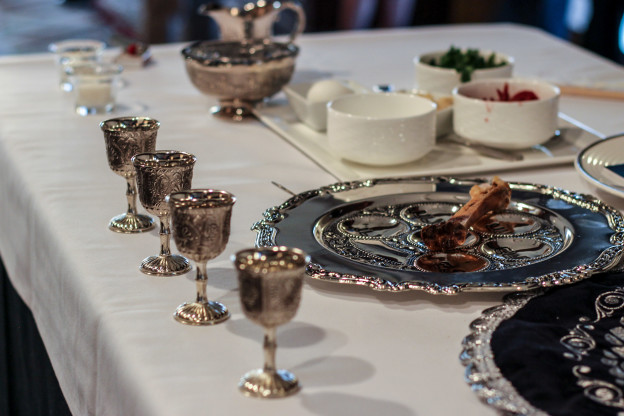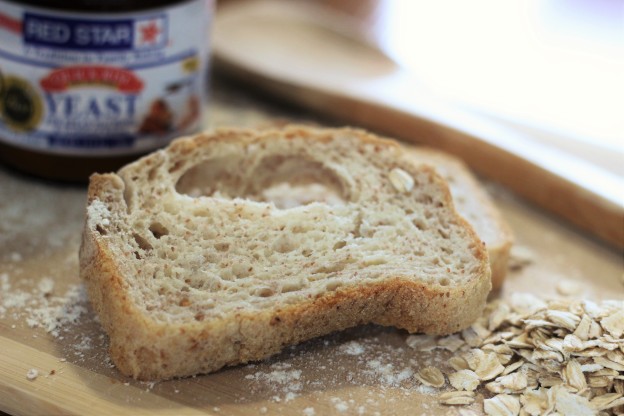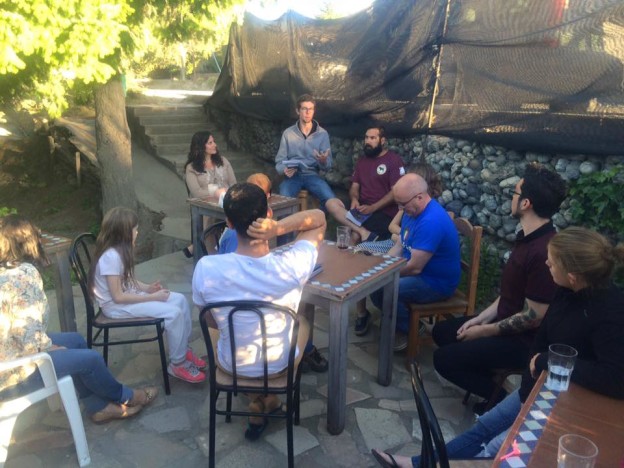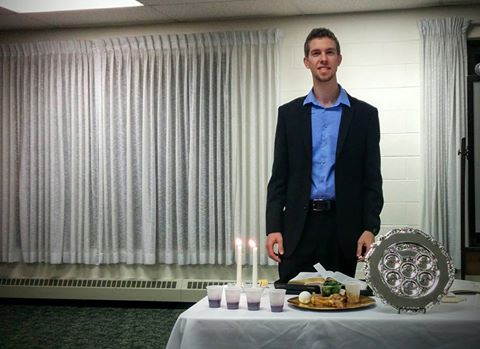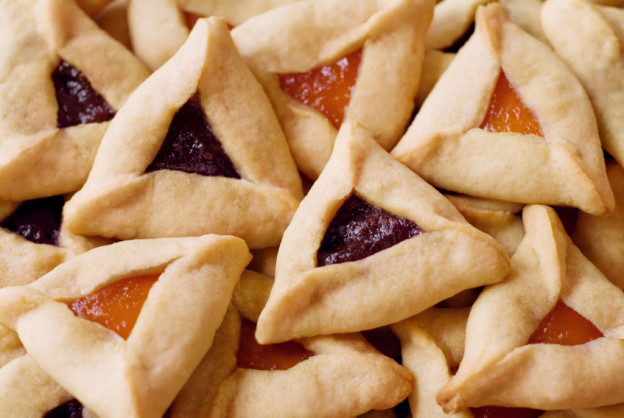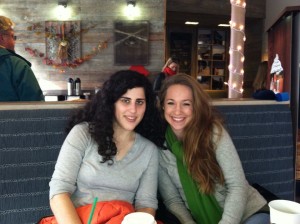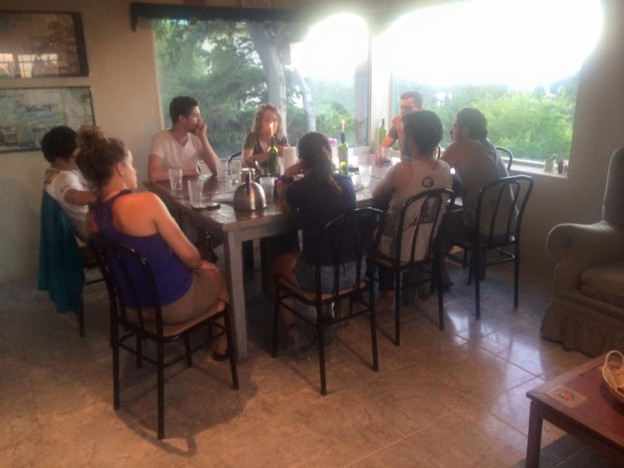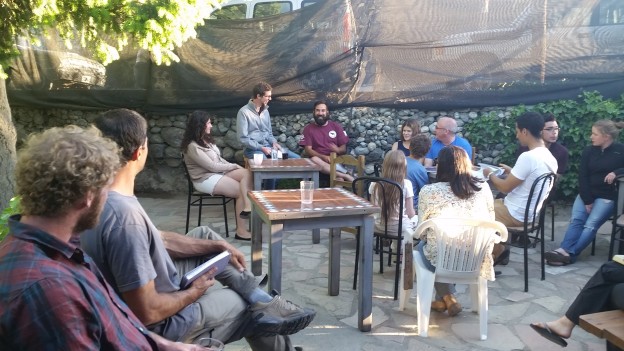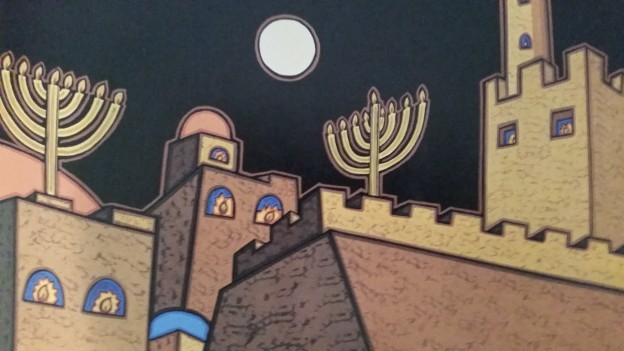My favorite holiday is Passover, and no other holiday has shaped me, or continues to do so, more than this one.
Passover first started molding me like a gefilte fish patty (Google it) while sitting around the dining room table in my grandparents home in Skokie, Illinois. I would arrive with my mother and we would join other family members in what is known as the Seder—an interactive ceremony that leverages our taste buds to engage our minds (and hopefully our hearts) with the incredible story of the Israelite exodus 3500 years ago from the bondage and suffering of slavery in Mitzrayim (Egypt). To help us reflect upon our ancestor’s story of deliverance at the hand of a Mighty God, my grandfather led us in reading through a story guide called the hagaddah (we used a free one published by Maxwell House until we eventually graduated to a more sophisticated one with pictures in it).
It was an epic story of bondage and redemption orchestrated by God that was accompanied by an epic meal with beef brisket and matzah ball soup that was orchestrated by my grandmother.
The Passover holiday took on a whole different level of epic in my life when I came to know Jesus as my Messiah and discovered that he also looked forward to Passover. Jesus said to his disciples, I have eagerly desired to eat this Passover with you before I suffer (Luke 22:15). Although I doubt it was because of the dinner menu.
In the New Testament, most bible translations take the liberty to subtitle the passage that Jesus and disciples shared the Passover together as The Last Supper. While it was certainly the last meal they would share together before his crucifixion, it was far more than that. It was an appointment with God, and this particular evening His Son was about to leverage the table to point to the suffering that he would go through to deliver depraved sinners like you and me.
The most important elements on the table were the unleavened bread and the cup of wine. The bread was known by the name God had given it, the Bread of Affliction, and it is this bread that Jesus took, recited the HaMotzi blessing, broke, and said—This is my body given for you; do this in remembrance of me. The name of the cup that followed the meal is believed to have been known as the Cup of Redemption, which Jesus took, recited the Kiddush blessing, and said—This cup is the new covenant in my blood, which is poured out for you (Luke20:20).
Jesus…afflicted and poured out for me. Why? Because I was a slave to sin and that sin separated me from living the life God had intended for me.
If we’re honest with ourselves, we all have our Mitzrayims that we’re enslaved to. We all have our “Egypts.” What’s yours? Greed? Anger? Jealousy? Bitterness? The inability to control yourself? God sent his Son—The Lamb of God—to pay the ransom to set us free from the penalty and the enslavement that our “Egypt’s” bring.
That is the story of Jesus’ Passover table that his followers are commanded to remember.
But there is more.
The other message Jesus taught at the table that evening is that he is equally as interested in enslaving and molding us into his way of life. He asked a very good question of his disciples—Who is more important, the one who sits at the table or the one who serves? (Luke 22:27).
If your server at a restaurant ever asks you this question, be careful how you answer.
Jesus’ table is not just about remembering the freedom from the eternal consequences that our sin unleashes in our world, but it is an invitation to enter into the life of suffering that Jesus lived through service and sacrifice for others.
This is the story of the Passover table that we must graduate to. Jesus did not just provide a ticket to ride to the other side of Glory, but he invites us into suffering daily with him in his ongoing work of delivering our world from the bondage of sin that entangles and destroys.
Jesus said at the Passover table…You are those who have stood by me in my trials. And I confer on you a kingdom, just as my Father conferred one on me, so that you may eat and drink at my table in my kingdom (Luke 22:29-30).
Every time we choose to serve and love others, we eat and drink at that table with him. When we choose to be generous, and kind, and forgiving, and gracious, we dine at his table. When we admit that we were wrong, or choose not to blast someone’s character in a social media post, or give someone a second chance, or sit at a table with other sinners like us, we feast at his table.
This is the Passover table that I’m learning to feast at.
Justin Kron, National Ministries Representative and eXperience Israel Program Director with Chosen People Ministries, became a follower of Jesus at a young age and grew up with one foot in the Jewish world and one foot in the Christian world, and has subsequently developed a passion to acquaint Christians with the Jewish roots and heritage of the Christian faith, and to become better equipped and engaged in living an authentic faith among their Jewish friends and neighbors.


